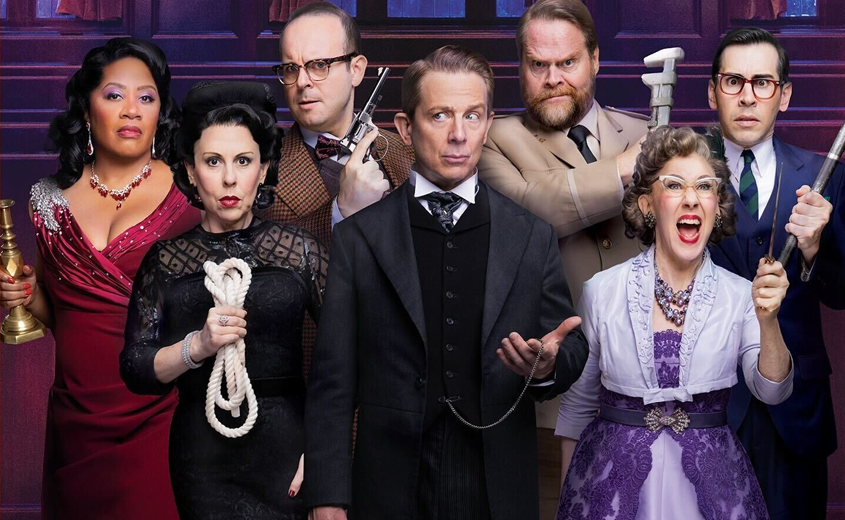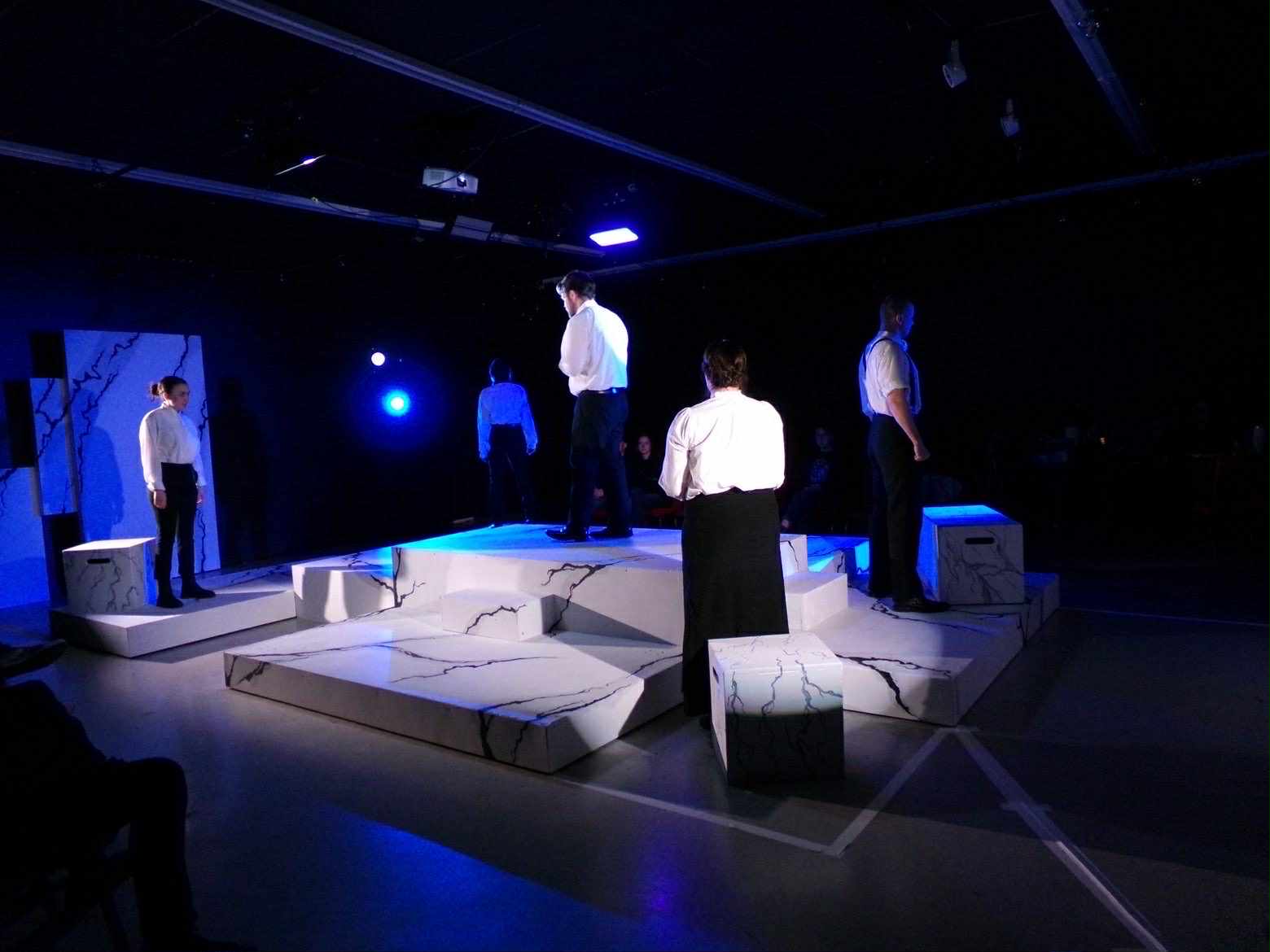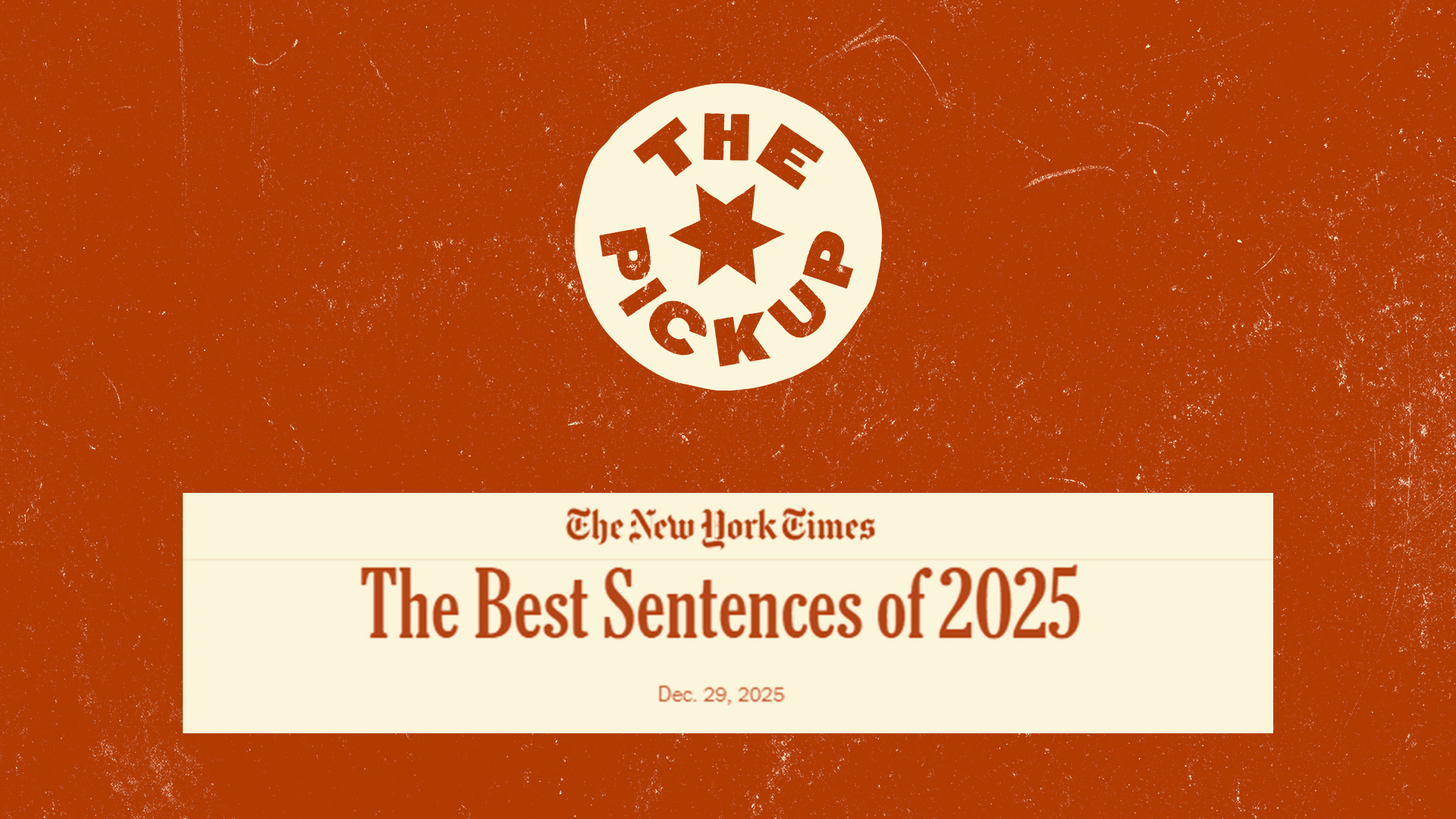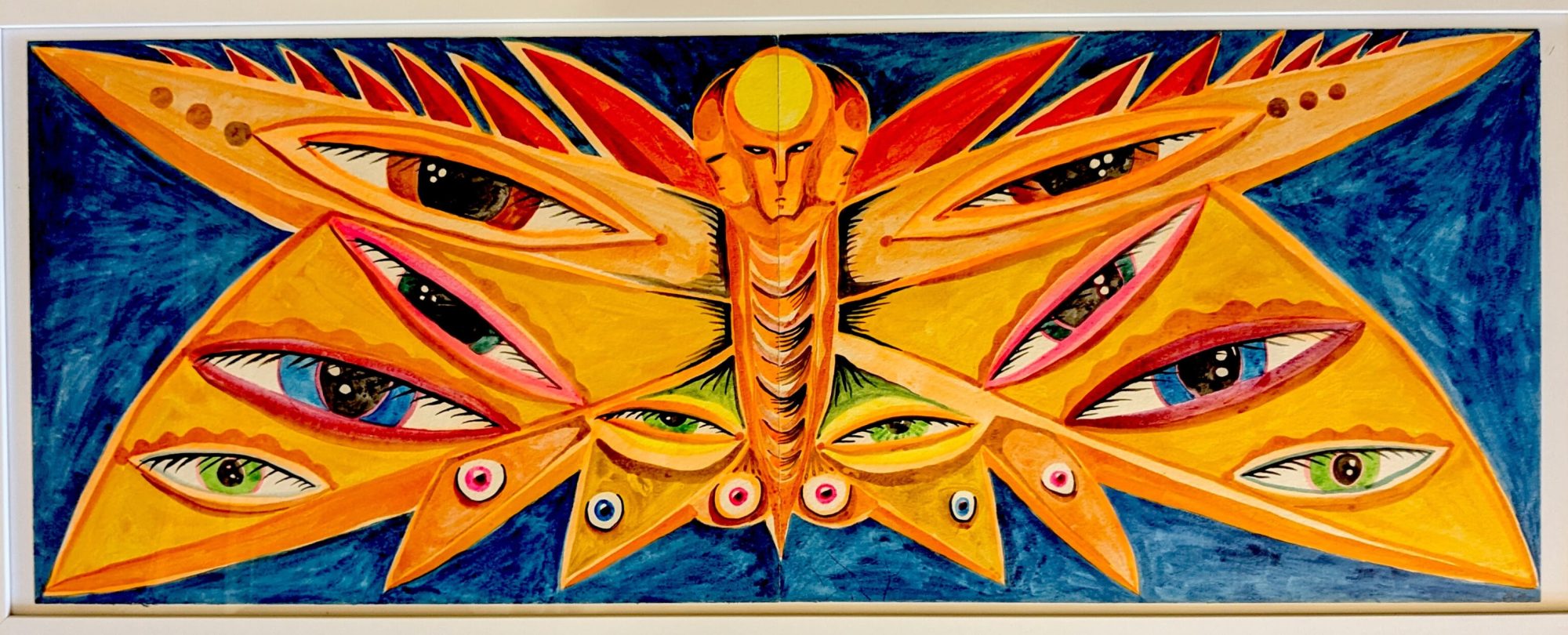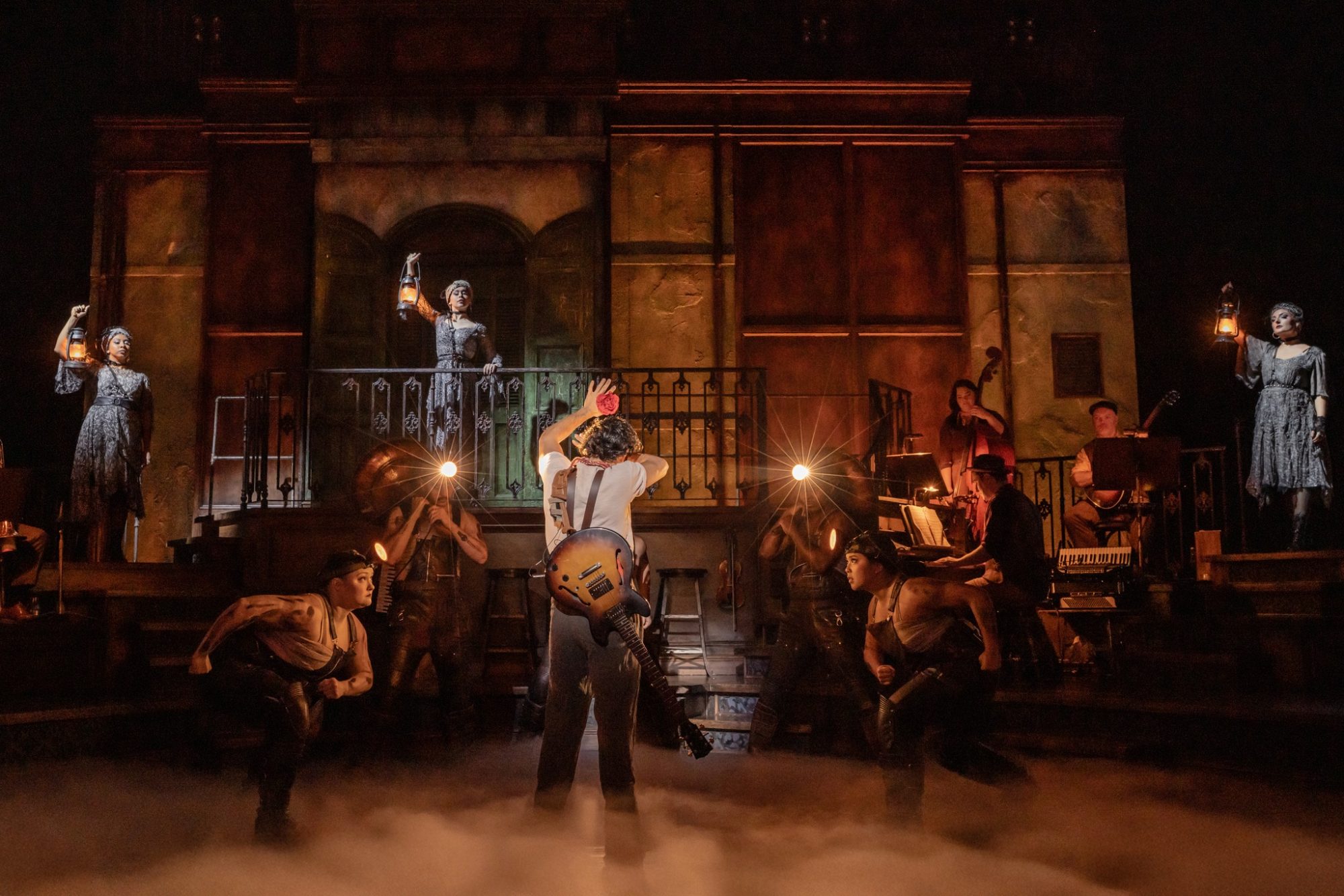I’d wager that I’ve seen the movie Clue (1985) around 100 times. The reasons for this are largely hereditary: my family loves to watch it, and so, therefore, do I. One of the first things I remember as a kid is being shocked by the image of Mr. Green slapping the absolute dogshit out of Mrs. Peacock while she screamed, then turning around and muttering “I had to stop her screaming!” while pushing his glasses back onto his face with an index finger. The movie is ingrained into my brain with linguistic precision. My family group chat often acts out whole sequences to each other. When someone exclaims anything close to, “Let us in!” I say to myself, “Let us out!” We watch it at holidays. Some families play boardgames, sing carols. We watch Clue.
So I was intrigued to find out that Celebrity Attractions was bringing a tour of Clue: Live On Stage to Tulsa. I’ve never thought of Clue, itself based on the board game, as something that needed adapting—indeed, the idea of adapting an adaptation never even crossed my mind. A performance like Tim Curry as Wadsworth the Butler seemed beyond comparison: a creation of talent, time, and terroir that could not be recreated. I was sadly correct.
Clue: Live On Stage is a sad pastiche of the 1985 cult classic. When it adheres to the original Johnathan Lynn screenplay, it does so too closely, refusing to allow the actors their own idiosyncrasies. Forty-year-old lines are delivered with a knowing wink. Emphasis that should be given to buildups of tension and tone—the driving forces in the original—instead gets funneled into what the writers think the crowd wants: to hear the lines they already know.
When the script deviates from the original film, it often does so in ways unnecessary and full of schtick. Michael McKean’s Mr. Green, in the original, is never trotted out by the script for being “a homosexual.” It is simply the circumstance which leads him to become a victim of blackmail. McKean never overacts the part, as the script never requires him to. In this stage adaption, the schlocky moment when John Shartzer’s Mr. Green must respond to a throwaway usage of the word “straight” with a schmaltzy “don’t ask me” (delivered with raised eyebrow and followed by a jokey moment in the music) exemplifies this play’s lack of confidence. The script is full of moments in which the playwright must, after having the actors deliver a line, turn to the audience and make sure they’ve heard it.
This is no knock against the actors, who do their best with a bad script, most of the time. Christina Anthony’s saucy Miss Scarlet is saucier than the original, and when she’s not badgering the audience to make sure they’ve heard her quip, she delivers a great performance. Shartzer’s Mr. Green is an incredible comedic physical actor; he wears the stage like a skin. And David Hess’s Colonel Mustard is a bright light, offering comic relief that lands on its own terms, instead of forcing itself down the audience’s throats.
I question Jeff Skowron’s Wadsworth (god forgive anyone who must follow Tim Curry), who plunges himself in and out of English and Boston accents for no good narrative reason. The film had no need to rely on such a switch; it had enough confidence in Tim Curry’s singular voice that it knew no one would question his ability to be both Wadsworth and Mr. Boddy. And why (as a way-too-deep-in-the-weeds-for-normal-people example) does the play’s Wadsworth say the line, “I didn’t know [America] was that free” to the cop investigating the mansion, when indeed, he shows the cop the fake party, instead of Mr. Green? It smacks to me of impatience: Was the plot not looked over for cohesion before being sent out on tour eight years ago?
Watching Clue: Live On Stage feels like the moment from the children’s show “Avatar: The Last Airbender” when the characters encounter a stage version of their own story. Near the end of the final act, they find that a playwright has followed them across the globe and developed a play version of their narrative. Excited, they attend the play, only to find that it is full of misunderstandings about their characters: certain characteristics are far too played up; the nuance of their characters is gone. Schticks that are subtle in the actual people are forced for laughs in the play.
It’s not all a misfire. Multiple technical moments elevate Clue: Live On Stage from imitation to art, such as the stunning fold-out set, which maneuvers like an origami paper fortune teller from scene to scene. When a chandelier drops, the slow-motion effect that the cast, music, and lighting creates is convincing, funny, and awe-inspiring. And the ending sequence, in which not three (as in the movie) but six or seven different versions of “Here’s What Really Happened…” unfold, is a masterclass in timing.
Technically, the play is brilliant. Spiritually, it has less to offer. The nuance that the original script offered the characters is gone, and in its place is that knowing wink: You’ve seen this all before, right? This is funny, right?
The Pickup's reviews are published with support from The Online Journalism Project.
